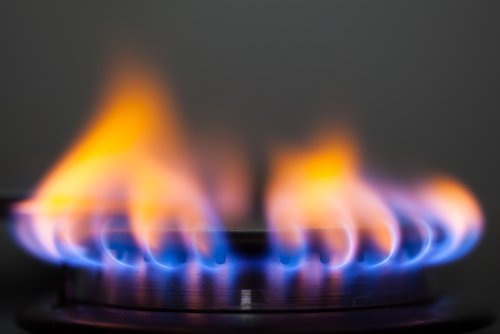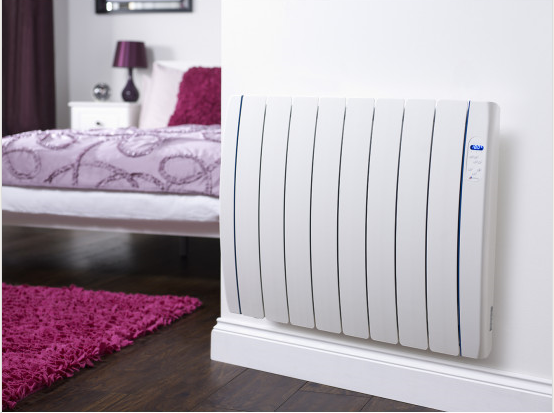
It’s that time of year again. Summer is in full bloom, the school holidays are nearly upon us, and the countryside is beckoning. If you’re anything like me, that means it’s time to start fantasising about upping sticks and living that dream life in the country. Goodbye stress, noise and bustle – hello nature, peace and tranquillity…
If you’ve had this fantasy before you’ll know how it goes. First comes daydreaming, flicking through albums of quaint country cottages, tumbledown forest lodges and hardy stone dwellings huddled in remote upland valleys. Next come the thoughts of everyday life: plotting how you’d negotiate working from home on a permanent basis with work, planning out what you’d grow in the garden, imagining your kids dangling from trees, running wild in the woods and learning to swim in the river, and wondering what you’d have to do to get a goat. Finally, it’s time to square your dreams up with reality, and you find yourself on RightMove, flicking through properties.
When you start looking for properties in remote locations, you’ll quickly notice one thing: the more remote the location, the less likely it is that your dream home will be connected to mains gas. But how much of a problem is this? And should it stop you from making that dream move?
Why don’t remote locations have access to gas?
 For around 23 million of us in the UK, mains gas is our primary heating fuel. An extensive network of pipes brings gas into our homes every day, which our appliances use to cook food, heat our homes and run hot water. However, some houses are simply too remote to make a connection to a gas pipeline economical.
For around 23 million of us in the UK, mains gas is our primary heating fuel. An extensive network of pipes brings gas into our homes every day, which our appliances use to cook food, heat our homes and run hot water. However, some houses are simply too remote to make a connection to a gas pipeline economical.
The Centre for Sustainable Energy have identified almost half a million postcodes in the UK where there is no mains gas supply available. In these homes, residents are completely reliant on more expensive forms of fuel, such as electricity, for all their energy needs.
DECC estimate that around 1 million homes in the UK today use electric storage heaters for their central heating needs, whilst some households are reliant on even more basic forms of heating such as electric bar fires or halogen heaters to supply all their warmth in the winter. But how expensive is this lifestyle really? And is it possible to make living without mains gas economical?
Why is gas such an economical fuel?
The answer to this question seems pretty simple. Gas is cheaper than electricity. In terms of the face value cost of a unit of each type of fuel, there really is no competition. To buy one unit of mains gas, you will pay around 4p. To buy a unit of electricity, it will set you back around 14p. So it’s easy to see straight away that, currently, gas is around 3 – 4 times less expensive than electricity.
Naturally, a statistic like that is pretty concerning if you’re thinking of moving to a location with no access to mains gas. But don’t put away your Country Life magazines just yet. There’s more to the cost of heating your home than the price of the fuel you’re using – there are several further factors to consider which might make life without gas seem a little less daunting financially.
The hidden costs of gas
 1. Gas boilers are not 100% efficient
1. Gas boilers are not 100% efficient
Even the most efficient, modern condensing boilers are only around 90% efficient, meaning a tenth of your money is down the drain before it even gets turned into heat. Electrical heaters, on the other hand, are all 100% efficient, turning every kWh of electricity into one unit of useful heat.
2. Gas boilers require more maintenance
An annual service on your boiler will set you back around £80 or so, and more if any parts require replacement. An emergency callout if your boiler breaks down could run into the hundreds unless you’re insured. With no moving parts to go wrong, there is literally no maintenance to be done on electric heating, and rarely any problems. Electric heaters don’t need servicing because, unlike gas boilers, they don’t burn fuel so they can’t create dangerous carbon monoxide. This means electric heating is much safer, too.
3. Gas is a fossil fuel
A house which uses gas is a house reliant on fossil fuels. Of course, as it stands today, with the majority of our electricity still generated in coal-fired power stations, most houses which use electricity are reliant on fossil fuels, too. But, unlike gas, your electric heating system will run equally well off sustainably generated electricity. This makes electricity a great forward-looking choice if you’re considering generating your own electricity, or anticipating a time when more of the UK’s electricity is generated using renewable resources.
The secret perks of electricity
1. Electric heaters are ultra-efficient, and only getting better

2. There are special tariffs for heating with electricity
Most energy suppliers offer special tariffs called Economy 7 and Economy 10 which give households a cheaper rate for electric consumed overnight. These tariffs are designed for use with storage heaters, which heat up overnight and release heat throughout the following day. Storage heaters were very popular before the development of energy efficient electric radiators, and are what you’ll most commonly find when you search the market for houses in remote locations. One drawback to using Economy tariffs is that, whilst your overnight rate will be cheaper, your daytime rate will be significantly increased. Whilst storage heaters work well with some lifestyles, most people will find it cheaper to use efficient electric radiators on a normal tariff.
3. Cheap Installation
To make electricity work for you, you may well wish to change the heating system currently used in your prospective property. Switching from storage heaters to electric radiators is a popular move which will give you efficient, controllable heating without costing the earth. Unlike removing or upgrading gas central heating, installing new electric heaters is cheap and easy. Most of our electric radiators and panel heaters are suitable for DIY installation: all you have to do is screw them to the wall and plug them in. This makes them excellent retro-fitting options – a big plus if your dream house is a period property with original features you want to preserve. Removing storage heaters is a little more complicated, but most electricians will be able to do the job in about a day.
If a life in the country is what you’ve always dreamed of, don’t let a switch to electric heating put you off. Electric heating has come such a long way from the invention of the first storage heaters in the 1940s; have a look around our site to find out how electric radiators, electric panel heaters and electric towel rails could help you heat that dream home in affordable style.
Want to find out more? Have a chat with our friendly sales team – they’ve helped hundreds of people living in remote areas of the UK make the switch from storage heaters to radiators, so it’s fair to say they’re experts in rural heating. Give us a call today for expert advice, information about our products, and all the hints and tips you’ll need to make heating your dream home affordable.






